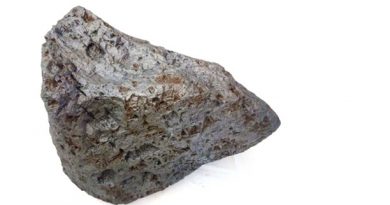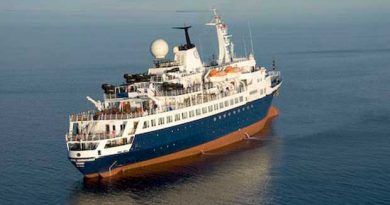Mining, the Arctic Council & Russian LNG–Arctic roundup 2023 with Heather Exner-Pirot
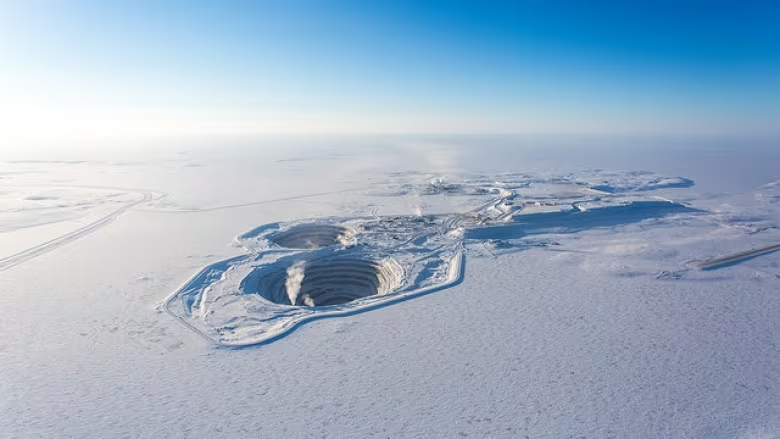
As we approach the year’s end, Eye on the Arctic is reflecting on the past 12 months in northern news.
For the 2023 edition of our annual Arctic news roundup, we reached out to northern experts, whose blogs appear on our site, for their insights on the most significant developments in business, environment, and politics of the year.
In the second installment of this year’s series, we spoke to Heather Exner-Pirot, the Director of Energy, Natural Resources and Environment at the Macdonald-Laurier Institute and Managing Editor of the Arctic Yearbook.
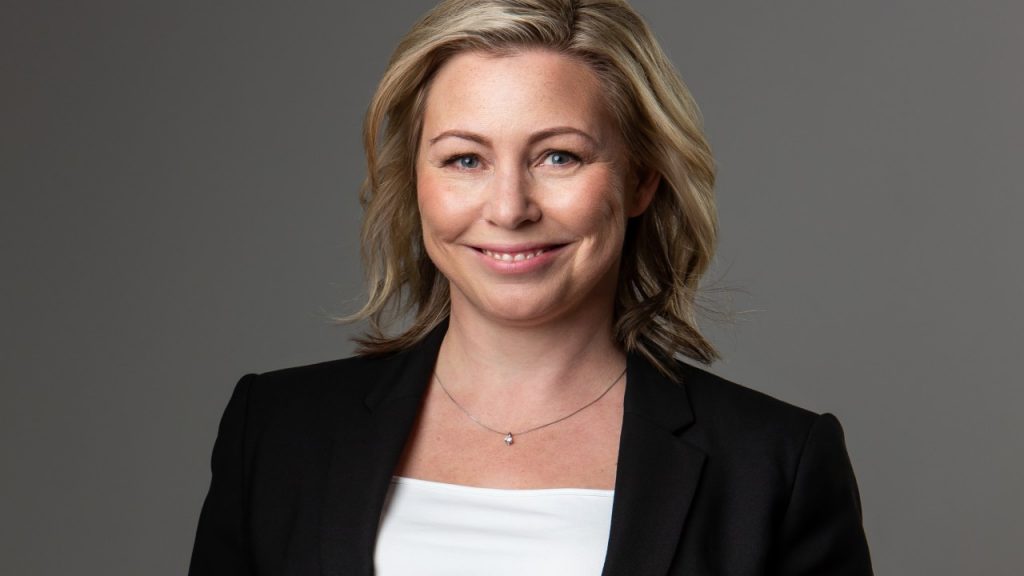
Eye on the Arctic: What Arctic headlines stood out for you this year?
Heather Exner-Pirot: For me, the big thing is the Arctic Council handover. We were all waiting to see how it would be handled and what it would look like, and it seems like it was pretty smooth. Then there was the question of how they would resume the work of the Arctic Council. The work is limited but it’s still ongoing. Russia is still a partner, there’s still collaboration with Russia so it’s hobbling along. But the question now is how long can that be sustainable? I’m not sure, but it’s a coup anyways for those diplomats. I think they achieved the best they could.
Canada’s NORAD spending commitments. We’d seen American senators and committees saying Canada wasn’t doing enough so it became a political issue. From a Canadian domestic perspective, I think there’s raised expectations in the territories and with Indigenous peoples that there’s this $40 billion pot of money that will be spent sprinkled across the North. Everyone wants to get a piece of it and use it as leverage to get infrastructure built and create jobs and revenue. But I don’t think that’s how the money is going to be spent. I think the majority of it will be spent in the South on things like equipment and personnel. I think more work needs to be done on expectation setting and understanding what NORAD spending means. The priority for this money is to protect the continent from legitimate, urgent security risks. The purpose is not to build roads and ports.
Russian LNG. Looking at the Arctic economy, the only really big growth area in the last few years has been Russian LNG. But that’s been very compromised by sanctions and is really hampering Russia’s Arctic growth prospects, and what’s happening along the Northern Sea Route. This is a very interesting dynamic that has much broader geopolitical and economic significance to the Arctic and other regions than just the success of Arctic LNG.

What story or event do you think deserved greater focus or coverage than it got?
Critical minerals and mining. Everyone knows we need critical minerals. People assume that given what we have in the Arctic, and the current desire for minerals, we’re going to go ahead and get them. But there’s zero indication that any major world class mines are getting developed in the Arctic. In the U.S., the Environmental Protection Agency rejected the Pebble Mine which was the largest undeveloped copper deposit, and copper happens to be the most important electrification metal.
We’re also seeing very little prospects for mining development in the Canadian Arctic. We’ve made it so expensive, so difficult and so time consuming to do mining in Northern Canada, that investors aren’t interested. And so if we ever want to see those mines, if we ever want to see that investment, there will have to be a change in public acceptance of that mining, or else we’ll just continue to free fall.
Meanwhile, the diamond industry in the Northwest Territories is at the natural end of its life. It’s a quarter of the territory’s GDP and there’s nothing in the queue to replace it. If any other province or country was gonna lose 25 per cent of their GDP in the next seven years, it would probably be a cause for concern. But for whatever reason, we’re not paying any attention to it.
Which Arctic news topics or developments do you plan on closely following in 2024?
Modular and microreactors and their potential for the Canadian North. Saskatchewan is testing out a microreactor which is a model that would be very suitable for the Arctic. I think SMRs have great potential and I’m very curious to see the extent to which Northerners, and northern governments, start to accept, or want, small modular reactors (SMRs) as a solution to their energy needs, and to decarbonization, as diesel plants reach their end of life.
Also on the technology side, the airship company Flying Whales is working with Canadian North to test the feasibility of using airships in northern Canada and the Arctic. That would be a big help to mining companies in using airships for some of their transportation needs so they could skip building over roads and the time it takes to do that.
So there’s two very exciting technologies coming online that we should see some progress on in the next year.
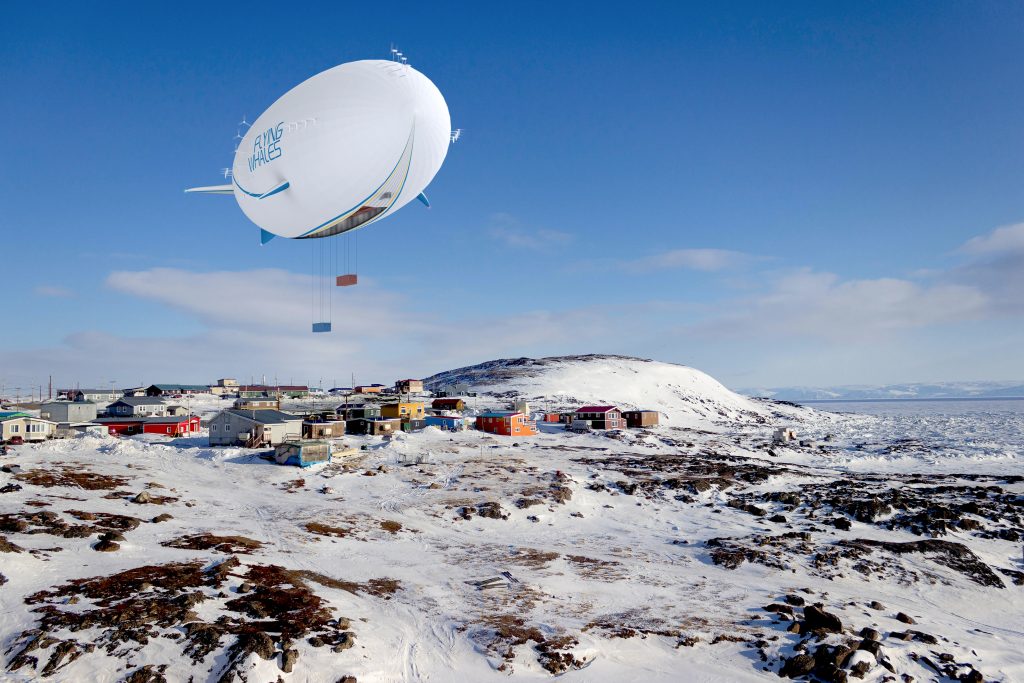
Internationally, we’ll obviously still be watching how the Arctic Council and the Arctic Seven can work with Russia and if we’ll start to see some normalization at all on the scientific side and the research side—so the functional cooperation—because that’s where you’d expect to see it first.
Or do things deteriorate, depending on what happens in Ukraine and what happens in Russian politics?
The above Q&A has been edited and abridged for length and clarity.
Comments, tips or story ideas? Contact Eilís at eilis.quinn(at)cbc.ca


